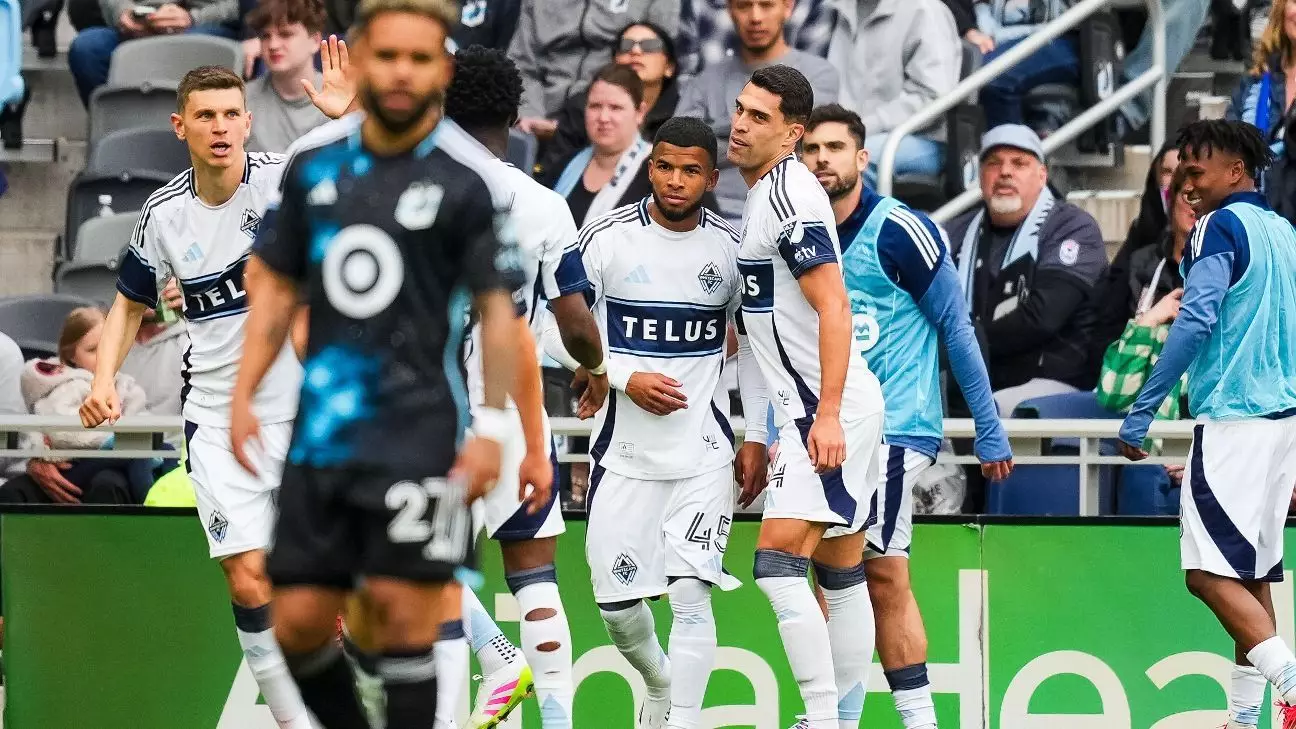In the dynamic world of professional sports, discrimination remains a pervasive problem that, despite years of public outcry and heightened awareness, continues to rear its ugly head. Major League Soccer (MLS) recently found itself embroiled in yet another troubling incident tied to its Non-Discrimination Policy during a match between Minnesota United FC and the Vancouver Whitecaps. In what was intended to be a spirited competition, a verbal altercation between players morphed into a serious violation of the principles that should govern all sporting events. This occurrence serves not only as a reflection of entrenched biases within the sport but also acts as a clarion call for much-needed reform and education to dismantle the lingering prejudices that mar the game.
An Explosive Incident
The unfortunate incident unfolded during the waning moments of a match where the stakes were palpable. The atmosphere, already charged, escalated when Joseph Rosales of Minnesota United confronted Emmanuel Sabbi of the Vancouver Whitecaps. Tensions flared and ultimately drew in teammates, invoking the direct oversight of referee Drew Fischer. His subsequent actions, notably choosing not to issue sanctions, highlighted the difficulty in proving verbal misconduct. Fischer’s inaction, which allowed the match to proceed uninterrupted, raises critical questions about the effectiveness of current protocols designed to curb discriminatory behavior in sports. In moments where tempers run high, is it too much to expect referees to not only officiate the game but also stand as protectors against discriminatory actions?
The Responsibility of Teams and Players
Following the incident, both the MLS and Minnesota United released statements addressing the shocking event, denouncing any form of discrimination. The public commitment from both parties signals an understanding of the urgent need for accountability in sports. Yet, here lies the dilemma: A statement of condemnation only goes so far. If teams—like Minnesota United—really want to promote an inclusive environment, they must go beyond mere lip service. The implications of this on-field behavior transcend singular incidents; they have ramifications for fans, young athletes, and the culture the sport aims to foster. Thus, players must be educated not merely about the consequences of discriminatory language but also about the broader implications of their actions in the public sphere.
A Pattern Emerging in MLS
This incident is not an isolated case but rather a striking reflection of a pattern that persists within the league. In the past years, MLS has grappled with similar issues, sanctioning players like Kai Wagner and Dante Vanzeir for their use of slurs. Each of these incidents acts as a painful reminder that despite significant strides, the sport has not totally eradicated harmful rhetoric. The league’s history of dealing with discrimination is perhaps a cautionary tale of complacency, spotlighting the need for a renewed approach to education within teams. Efforts to improve upon this are notable, yet still, the question lingers: Why do incidents like this still occur with alarming frequency?
Effective Measures and Proactive Change
In response to the pattern of discriminatory behavior, MLS’s initiative to work with the advocacy group Black Players For Change to establish a training program signifies a move in the right direction. Having all associated personnel partake in education about acceptable behavior and language is essential, as ignorance can no longer serve as an excuse. However, the efficacy of such programs is tied to the willingness of the players and coaching staff to genuinely engage in these conversations. Education cannot be reduced to mere participation; it demands a shared responsibility to create a culture that not only condemns discriminatory acts but actively promotes diversity and inclusion at all levels.
The Road Ahead: Reflecting on the Broader Impact
As the spotlight shines on MLS in the wake of this incident, it is a priceless opportunity for introspection and growth not only for the league but for the broader sporting community. The expectations placed on professional athletes extend beyond just wins and losses; they serve as role models, standing at the frontline to either challenge or reinforce societal norms. In recognizing their responsibilities, leagues like MLS have a unique chance to dismantle systemic prejudice. It is time for all stakeholders—players, coaches, and league officials—to prioritize an authentic commitment to equality, turning the narrative of discrimination into one of respect and understanding within the beautiful game.

